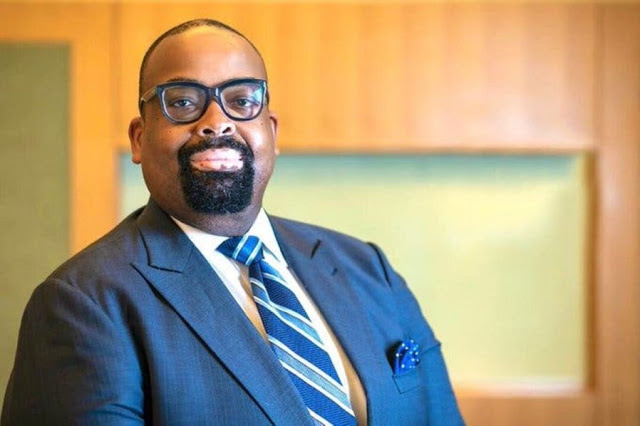*As Oyo CJ, Prof Omolewa, Others Get Award
“No government is subordinate to the other, each is an autonomous entity that can operate free of direction or control from other places in a federal system. The growing agitations of secessionists are a result of the rising insecurity and inability of the government to secure the lives and properties of the masses.”
These were the words of the president of the Nigerian Bar Association (NBA), Olumide Akpata, while speaking on the topic; Devolution of Power: A panacea for Nigeria’s insecurity challenges at the Hon. Justice Pius Aderemi, JSC Annual Lecture (JAALS) which was held at the Aare Afe Babalola Centre, Iyaganku, Ibadan on Thursday.
Akpata stated that devolution of power, which simply means the transfer of power or governance responsibilities from a central government to sub nationals or administration decentralisation which means the transfer of some authority or power from a central organisation or government to smaller organisations or government departments simply focuses on the distribution of power to make a government more effective.
He explained that if devolution of power is properly managed, it can solve Nigeria’s security challenges, adding that the dissatisfaction with the insecurity situation in the country is the major factor threatening the unity of the country, emphasizing that its effects are too huge to be overlooked; lack of foreign investments, high rate of out of school children as a result of kidnap and the threat of severe food security which is already being realised through galloping food prices.
He stated that the executive list must be pruned and the states are given the power to handle some things especially security because the present situation where the government cannot control the security apparatus will not solve the challenge as local intelligence is needed to fight rising insecurity at the local level, adding that this is the reason governors are asking for the ability to control security agencies through state policing.
He emphasised that there is a conundrum because the federalism being practised is not what it should be but what the constitution describes it to be, adding that “federalism is a political structure in which federating units can operate in terms of shared powers and responsibility and no government is subordinate to another as provided in Section 2 (2) of the 1999 constitution of the Federal Republic of Nigeria.
“There is no universal agreement to what federalism is. Section 14 (2) (b) of the constitution states that the primary purpose of government is security while Section 2 (14) provides for the creation of a police force for Nigeria that will be named the Nigeria Police Force meaning it is illegal for a state to have the police force but the same constitution indicates that a state governor is the Chief Security Officer in his state while the governor constitutionally is not in actual control of the police force,” Akpata stated, reiterating that the constitution has created a faulty system of federalism.
In the panel discussion that followed the keynote paper, panellists stated that devolution of power must start from the constitution as it is not possible to put something on nothing, adding that the foundation which is the constitution must first be sorted out because local problems need local remedies and a 21st-century challenge cannot be resolved with a 19th-century solution.
The panellist also stated that Nigeria needs arbitration to determine the terms of its continuous unity as well as a document that is indigenous to the Nigerian society.
“We need to decide whether we will break up to rebuild our terribly fractured entity or continue patching till it collapses. There is no better time to address the imbalance in the system that is creating a security deficit in the country. Also, our lost value system should be resuscitated because we all have a role to play in security matters. The people that perpetrate crime are in our community, but we all act like we do not know,” the panel stated.
There was also an award ceremony to recognise personalities that have contributed meaningfully to the judicial sector in the country. Awardees include the Chief Judge of Oyo State, Justice Munta Ladipo Abimbola, Ho. Justice Lambe Arasi, Emeritus Professor Michael Omolewa (OON), Andrew Osaro Eghobamien (SAN), Mrs Funke Adekoya (SAN) and the NBA president, Olumide Akpata.
In their goodwill messages, Prof. Smaranda Olarinde, Vice-Chancellor of Afe Bablaola University, Ado Ekiti, Andrew Osaro Eghobamien (SAN), and Olayinka Esan, chairman, Ibadan branch of NBA and Tunde Busari (SAN), described late Justice Pius Aderemi (JSC), as a legal luminary who in his lifetime contributed enormously to legal jurisprudence and whose achievements will remain indelible in the judicial sector.

